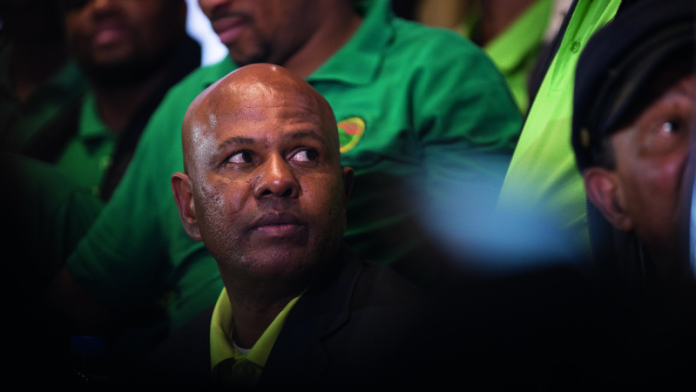
SOUTH African platinum group metal (PGM) companies today signed a three-year wage deal with the Association of Mineworkers & Construction Union and UASA bringing an end to four months of negotiations.
Sibanye-Stillwater, Impala Platinum (Implats), and Anglo American Platinum (Amplats) agreed to pay to a basic pay increase of R1,000 per month renewable annually in a deal that AMCU president, Joseph Mathunjwa, said should have been signed earlier.
Commenting at the deal signing ceremony in Rosebank, Johannesburg, Mathunjwa observed in typically robust style that the PGM companies had allowed workers to continue living in “squalor” whilst they capitalised on higher pricing for PGMs.
Nonetheless, he described the basic pay increase – which has a gross value of R5.7bn over the term – as “substantial”. The wage agreement expires in June 2022.
“We believe this agreement will ensure the business can remain sustainable through the typical PGM price cycles, while our employees will benefit from meaningful pay and other increases,” said Chris Griffith, CEO of Amplats in a company statement.
His company would also pay an `ex-gratia’ of R1,000 in July 2020 and R1,500 in July 2021. The agreement would increase the total cost-to-company by 7.4% in the first year, increasing by 6.1% and 6.3% in the second and third years respectively. This was equal to 6.6% on average over the three years.
Neal Froneman, CEO of Sibanye-Stillwater, described the agreement as “competitive” for employees and sustainable for the company. Froneman also acknowledged the strike had been incident-free.
Although negotiations went into dispute, and despite some sabre-rattling by Mathunjwa, the violence of a strike at Sibanye-Stillwater’s gold mines, which began in November last year, was not repeated this time around.
Nor was AMCU compelled into testing for the first time support for strike action among its ranks through the secret ballot mechanism that is now required in terms of amendments to the Labour Relations Act.
Mathunjwa warned today, however, that his union wouldn’t be compelled to use the secret ballot in the future. His organisation would not be pushed into a corner on the issue. “Don’t push us,” he said, adding that it was not in South Africa’s interests to make the country ungovernable.
Commenting in its wage agreement, Sibanye-Stillwater said basic wages for entry level surface and underground employees through to category 9 employees would be increased R1,000/month, or 5% (whatever is the highest) for both its Rustenburg and Marikana operations, formerly known as Lonmin.
This was despite the Marikana shafts in the throes of restructuring. The pensionable base pay would increase 3.5% for Marikana over each of the next three years, and 5% for Rustenburg. Rock drill operators at both operations would see a R100 per month allowance increase for each of the three years, or 5%.
The total guaranteed monthly income for an entry level employee is now between R18,400 and R18,500 per month increasing to R20,700 and R20,800 per month in year three.










